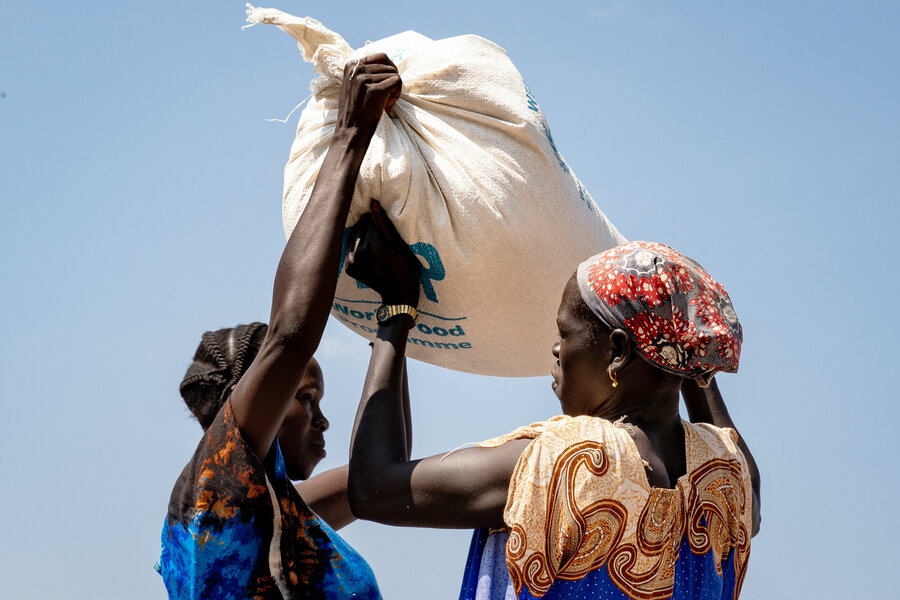USAID and WFP: Saving Lives Together in South Sudan for 10 Years

JUBA – As South Sudan marks 10 years of independence, the United Nations World Food Programme (WFP) and the United States Agency for International Development (USAID) reaffirm their strategic partnership to improve the lives of millions of South Sudanese and support their aspirations for a better future.
Years of conflict, displacement and environmental shocks have led to chronic hunger, malnutrition, poverty, and the loss of many lives in the world’s youngest country. The U.N. World Food Programme’s partnership with USAID continues to combat these stressors and helps establish the peace and stability that is key for the success of the nation and its people.
The U.N. World Food Programme’s efforts to mitigate the short-term effects of severe food insecurity includes delivering 661,386,787 pounds of food assistance annually to more than five million people in South Sudan. Food rations and nutritional supplements are provided for the treatment and prevention of malnutrition.
While emergency food assistance is instrumental to turn the tide on hunger, eliminating the root-cause of famine requires longer term and more complex interventions: strengthening education, nutrition, livelihood resilience, and economic empowerment.
“To help vulnerable people thrive, the U.N. World Food Programme goes beyond emergency food assistance,” said Matthew Hollingworth, Representative and Country Director of the U.N. World Food Programme in South Sudan. “We are expanding our livelihoods activities to enable families to increase their income, bring communities up to speed on the latest agronomical practices, build people’s resilience to climatic shocks, and to enable food production at scale for a more food secure South Sudan. The U.N. World Food Programme counts on the steady support of our donors to help us sustain the momentum we have built so far.”
The U.N. World Food Programme’s school meals program, which benefits more than half a million school children across all 10 states, is an investment in the future. This initiative feeds South Sudan’s young children with the aim of helping them to grow up to become self-reliant in a peaceful and more hopeful future.
The U.N. World Food Programme’s livelihoods program continues to be a great success, benefiting more than 730,000 people by allowing them to enhance their food production, store their crops more efficiently and gain business expertise when selling surplus in local markets. Maintaining and growing these programs requires the fortitude of generous donors to continue helping the farmers of South Sudan, especially as the lean season peaks this month in July and August.
Coupled with continued assistance, humanitarian interventions that create economic opportunities, such as those delivered by the U.N. World Food Programme and its partner USAID, will enable the South Sudanese people to build these pillars of long-term peace and prosperity.
“USAID deeply values its strong partnership with the U.N. World Food Programme in South Sudan and the vital assistance that partnership has been able to bring to millions of South Sudanese people over the last decade,” said McDonald Homer, USAID/South Sudan Acting Mission Director McDonald Homer.
The United States has provided the U.N. World Food Programme with over $3.1 billion in humanitarian funds since South Sudan was founded in 2011.
# # #
The United Nations World Food Programme is the 2020 Nobel Peace Prize Laureate. We are the world’s largest humanitarian organization, saving lives in emergencies and using food assistance to build a pathway to peace, stability and prosperity for people recovering from conflict, disasters and the impact of climate change.
Follow us on Twitter @WFPUSA, @wfp_media, @wfp_southsudan and @wfp_africa




